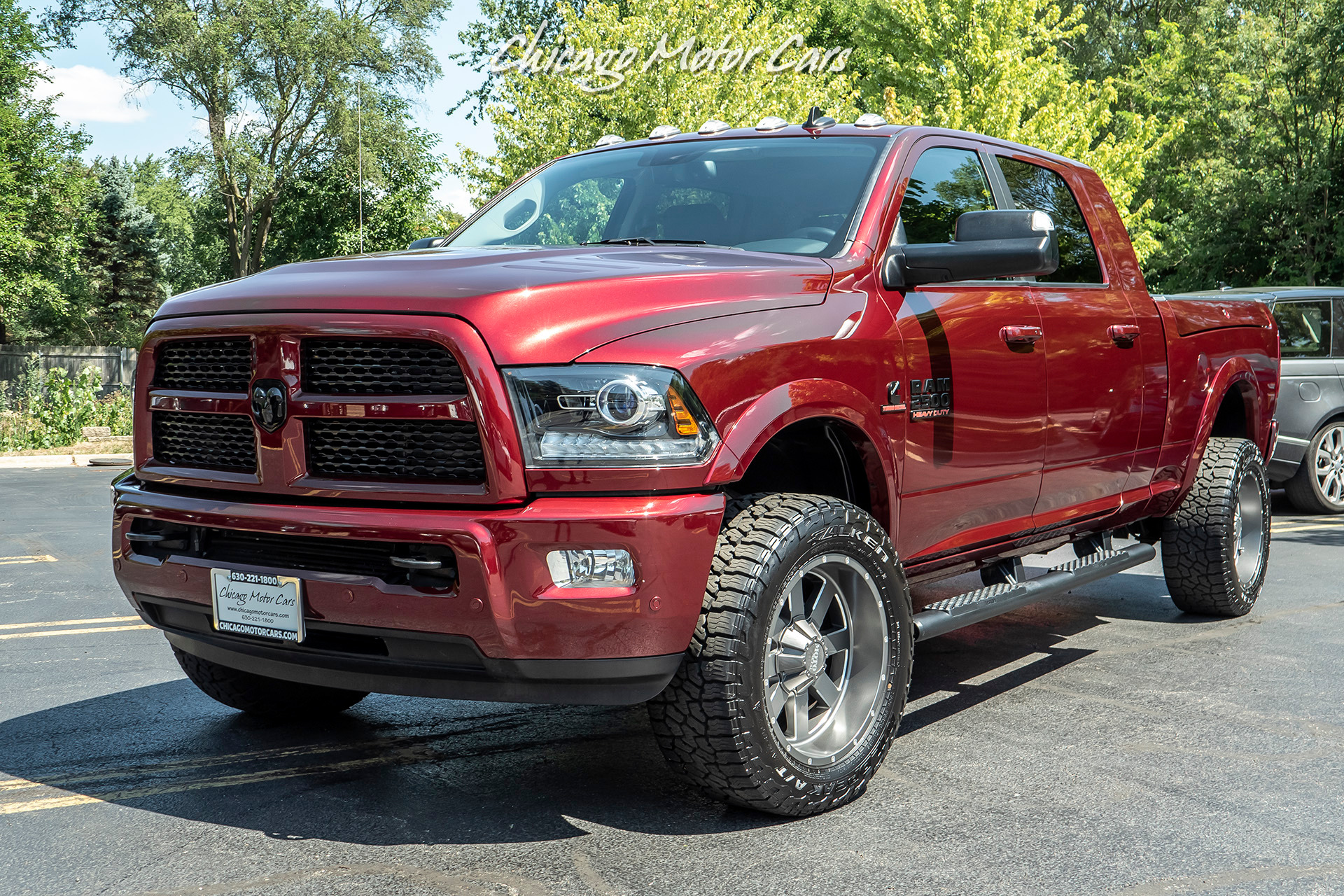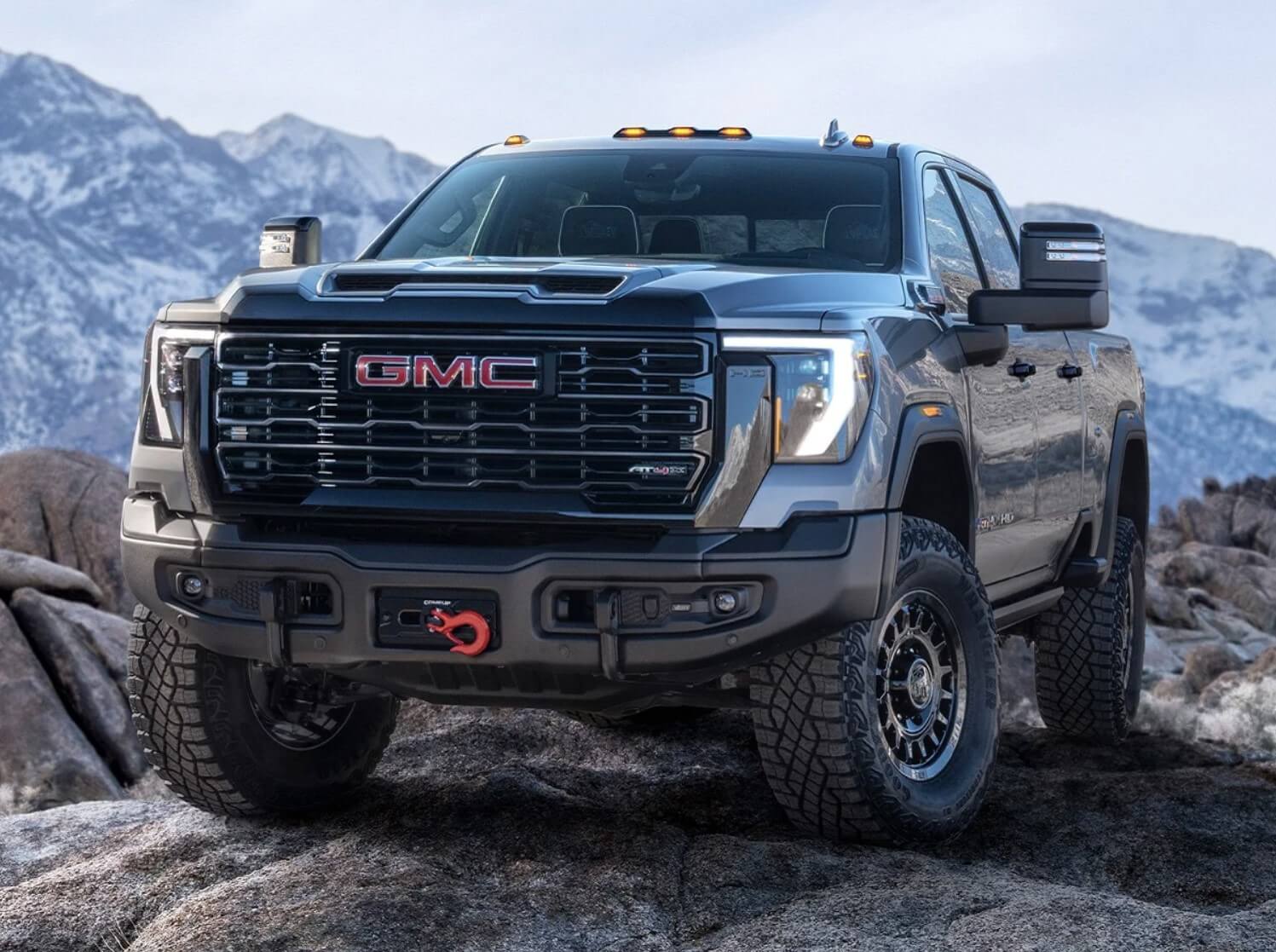Used Chevy 2500 Diesel Trucks For Sale: Your Comprehensive Buying Guide types.truckstrend.com
The rumble of a diesel engine, the impressive towing capacity, and the legendary durability – these are just some of the reasons why the Chevrolet Silverado 2500 HD diesel truck has earned its reputation as a true workhorse. For those seeking power, reliability, and immense capability without the hefty price tag of a new vehicle, the used Chevy 2500 Diesel market presents an incredibly attractive proposition. This guide will delve deep into everything you need to know about finding, evaluating, and purchasing a used Chevy 2500 Diesel, transforming you from a curious browser into a confident buyer.
Why Choose a Used Chevy 2500 Diesel Truck? The Power of Proven Performance
Used Chevy 2500 Diesel Trucks For Sale: Your Comprehensive Buying Guide
The Chevy Silverado 2500 HD, particularly with its Duramax diesel engine and Allison transmission pairing, is synonymous with heavy-duty performance. Buying used offers significant advantages:
- Exceptional Value: New trucks depreciate rapidly. A used 2500 HD diesel has already absorbed the steepest part of this depreciation, allowing you to acquire a highly capable truck at a fraction of its original cost.
- Proven Reliability: The Duramax/Allison combination is renowned for its longevity. Many of these trucks reliably rack up hundreds of thousands of miles, proving their engineering prowess.
- Unmatched Capability: With superior torque and towing capacity compared to gasoline counterparts, a diesel 2500 HD is ideal for hauling large trailers, RVs, boats, or heavy equipment.
- Strong Resale Value: Diesel trucks, especially well-maintained ones, tend to hold their value better than gasoline trucks due to their specialized demand and durability.
- Torque & Fuel Economy: While not a "fuel-saver" in the traditional sense, diesel engines often offer better fuel efficiency than comparable gasoline engines when under load, thanks to their high torque output at lower RPMs.

Understanding the Duramax Generations: A Buyer’s Guide to Engines
Chevrolet’s Duramax diesel engine has evolved significantly since its introduction in 2001. Each generation has its unique characteristics, strengths, and common considerations. Understanding these can help you narrow down your search and identify the best fit for your needs.
- LB7 (2001-2004): The pioneering Duramax. Known for strong performance.
- Considerations: Early models were notorious for injector issues, though many have been replaced under warranty or through aftermarket solutions. No EGR (Exhaust Gas Recirculation) or DPF (Diesel Particulate Filter), which some buyers prefer for simplicity.

- LLY (2004.5-2005): Introduced EGR.
- Considerations: Some early LLYs experienced minor overheating issues under heavy load, often resolved with aftermarket fixes (e.g., upgraded mouthpieces, improved air intakes). Still no DPF.

- LBZ (2006-2007 Classic): Often considered the "holy grail" by enthusiasts.
- Considerations: Boasts strong power, a refined Allison 6-speed transmission, and no DPF. Generally regarded as one of the most reliable and sought-after Duramax engines.
- LMM (2007.5-2010): The first Duramax with a Diesel Particulate Filter (DPF).
- Considerations: The DPF system can require maintenance (regeneration cycles, cleaning, replacement). Still a powerful and capable engine, but the emissions equipment adds complexity.
- LML (2011-2016): Introduced Selective Catalytic Reduction (SCR) requiring Diesel Exhaust Fluid (DEF).
- Considerations: Increased power and torque. The CP4 fuel pump used in these models has a known failure mode that can be costly. DEF system adds another fluid and maintenance point.
- L5P (2017-Present): A significantly redesigned and more powerful Duramax.
- Considerations: Addresses many of the LML’s issues, including a new high-pressure fuel pump (Denso HP4). More complex emissions systems but generally highly reliable and robust. Newer used models will command a higher price.
The Buying Process: A Step-by-Step Guide to Your Used Diesel Truck
Purchasing a used diesel truck requires diligence. Follow these steps to ensure a smart investment:
- Define Your Needs and Budget:
- Purpose: Towing, hauling, daily driving, off-roading? This influences trim level, bed size, and drivetrain (2WD vs. 4WD).
- Towing Capacity: Match the truck’s capacity to your heaviest anticipated load.
- Budget: Beyond the purchase price, factor in insurance, potential repairs, fuel costs, and maintenance. Diesel parts and labor can be more expensive.
- Research and Locate Potential Trucks:
- Online Marketplaces: Autotrader, Cars.com, CarGurus, Facebook Marketplace, Craigslist.
- Dealerships: New and used car dealerships often have a selection of HD trucks.
- Private Sellers: Often offer lower prices but come with less recourse if issues arise.
- Filter your search: By year range, mileage, price, and desired features.
- Initial Vetting (Online/Phone):
- Ask for Maintenance Records: Crucial for a diesel. Look for regular oil changes, fuel filter replacements, transmission services.
- Inquire About Modifications: Be wary of heavily modified trucks unless professionally done and well-documented. Engine "tunes" can increase wear if not properly calibrated.
- Check for Rust: Ask for detailed photos, especially of the frame, rocker panels, and brake lines.
- Vehicle History Report (CarFax/AutoCheck): Look for accidents, flood damage, salvage titles, consistent mileage readings, and service history.
- In-Person Inspection (Your Eyes and Ears):
- Exterior: Look for body damage, inconsistent paint (indicates repaint/accident), tire wear (uneven wear can point to suspension issues), and rust.
- Interior: Check for excessive wear, strange odors, and functionality of all electronics (windows, locks, AC, radio).
- Engine Bay: Look for leaks (oil, coolant, fuel), frayed wires, aftermarket parts (if any), and general cleanliness. A very clean engine bay might hide leaks.
- Underneath: Inspect the frame for cracks or severe rust, suspension components, exhaust system (especially the DPF on LMM+ models), and differential covers for leaks.
- Test Drive:
- Cold Start: Listen for engine knocks, excessive smoke.
- Acceleration: Smooth power delivery, no hesitation.
- Transmission: Smooth shifts, no slipping or harsh jerks. Test at various speeds and under light acceleration.
- Brakes: Firm pedal, no pulling, no grinding.
- Steering: Tight, responsive, no excessive play.
- Suspension: No excessive bouncing or clunking over bumps.
- Highway Speeds: Check for vibrations, road noise, and tracking straight.
- Listen for unusual noises: Whistles, clunks, grinding, or howling.
- Pre-Purchase Inspection (PPI):
- THIS IS CRITICAL. Take the truck to an independent, trusted mechanic specializing in diesel trucks. They will put it on a lift, check for codes, and perform a thorough inspection that you can’t. This small investment can save you thousands in future repairs.
- Negotiation and Financing:
- Be Prepared: Research market values for similar trucks.
- Use PPI Findings: Any issues found can be leverage for negotiation.
- Financing: Get pre-approved for a loan before you shop to know your budget and strengthen your negotiation position.
Important Considerations and Potential Challenges
While highly desirable, buying a used diesel comes with specific considerations:
- Maintenance Costs: Diesel engines, while durable, can have more expensive parts and specialized labor. Fuel filters, oil changes (larger oil capacity), and emissions system components (DPF, DEF) are often pricier.
- Emissions Systems (LMM onwards): DPF and DEF systems require attention. If neglected, they can lead to costly repairs or reduced performance. Be aware of "delete" kits – while they may improve performance, they are illegal for street use in many areas and can void warranties.
- Fuel Costs: Diesel fuel is often more expensive than gasoline, and modern diesels require Ultra Low Sulfur Diesel (ULSD).
- Mileage: High mileage isn’t necessarily a deal-breaker for a diesel if it’s been well-maintained. A 200,000-mile diesel with meticulous records can be a better buy than a 100,000-mile truck with no history.
Estimated Price Ranges for Used Chevy 2500 Diesel Trucks
Prices for used Chevy 2500 Diesel trucks vary significantly based on year, mileage, condition, trim level (WT, LT, LTZ, High Country), features, and geographical location. The table below provides estimated ranges for trucks in good, well-maintained condition. These are rough guidelines, and you should always do your own market research.
| Duramax Generation | Model Years | Estimated Price Range (USD) | Key Features/Notes |
|---|---|---|---|
| LB7 | 2001-2004 | $8,000 – $18,000 | Original Duramax; injector concerns (often addressed). |
| LLY / LBZ | 2004.5-2007 | $12,000 – $25,000 | LBZ highly sought-after (no DPF); LLY minor overheating. |
| LMM | 2007.5-2010 | $15,000 – $30,000 | First with DPF; good power, DPF maintenance. |
| LML | 2011-2016 | $20,000 – $40,000 | Added DEF; CP4 fuel pump concerns; increased power. |
| L5P | 2017-2019 | $35,000 – $55,000 | Redesigned engine, improved reliability; more complex tech. |
| L5P | 2020-Present | $45,000 – $70,000+ | Latest generation; highest prices for used models. |
Disclaimer: These prices are highly variable and depend on factors like mileage, condition, trim level, 2WD/4WD, specific options, and regional market demand. Always conduct thorough research and consider a pre-purchase inspection.
Frequently Asked Questions (FAQ)
Q: What’s the best Duramax engine to buy used?
A: Many enthusiasts consider the LBZ (2006-2007 Classic) to be the "best" due to its strong performance, reliable 6-speed Allison transmission, and lack of a DPF (Diesel Particulate Filter) system, simplifying maintenance. However, newer generations (LML, L5P) offer more power and refined features, albeit with more complex emissions systems.
Q: How many miles are too many for a used diesel truck?
A: Unlike gasoline engines, diesels are built to last much longer. 200,000 to 300,000 miles is not uncommon for a well-maintained Duramax. Focus more on comprehensive maintenance records and a thorough pre-purchase inspection than just the odometer reading.
Q: What are the most common problems with used Duramax engines?
A: Common issues vary by generation:
- LB7: Fuel injector failures (often addressed under warranty).
- LLY: Minor overheating under heavy load (often resolved with aftermarket parts).
- LML: CP4 high-pressure fuel pump failures.
- LMM, LML, L5P: Issues related to the Diesel Particulate Filter (DPF) or Diesel Exhaust Fluid (DEF) systems if not properly maintained.
Q: Should I buy a diesel truck with a "delete" kit?
A: "Delete" kits remove emissions components like the DPF and EGR. While they might offer performance benefits, they are illegal for street use in most areas, can result in hefty fines, and will void any remaining factory warranty. Resale can also be challenging. It’s generally advised to avoid them unless you understand the legal ramifications and are planning for off-road or competition use only.
Q: Is diesel fuel more expensive than gasoline?
A: Typically, yes. Diesel fuel often costs more per gallon than regular unleaded gasoline. However, diesel engines generally offer better fuel efficiency, especially when towing or hauling, which can offset some of the higher per-gallon cost.
Q: How much does maintenance cost for a used diesel truck?
A: Maintenance costs can be higher than for gasoline trucks due to larger fluid capacities (e.g., more oil for oil changes), specialized parts, and the complexity of emissions systems. However, some maintenance intervals (like oil changes) can be longer. A pre-purchase inspection will help identify immediate needs.
Conclusion
The used Chevy 2500 Diesel truck market offers a treasure trove of powerful, durable, and highly capable vehicles for those who understand their needs and approach the purchase with due diligence. From the robust LBZ to the advanced L5P, each Duramax generation has its unique appeal. By meticulously researching, thoroughly inspecting, and wisely negotiating, you can confidently drive away with a used Chevy 2500 Diesel that will serve as a reliable workhorse for years to come. Investing the time upfront will undoubtedly pay dividends in the form of a truck that can tackle almost any task you throw its way.
